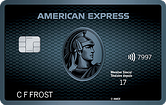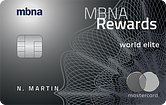Choosing a new credit card can be overwhelming – and the first place you typically need to start is with whether you want a cash back or travel rewards card.
While a cash back credit card earns you straight-up cash on your purchases, welcome bonuses are typically smaller and you may only receive your payout once per year. On the other hand, many travel rewards credit cards come with hefty welcome bonuses, travel-related perks, and a variety of ways to spend your points (though not always for high value).
Key Takeaways
- Both cash back and travel rewards cards let you earn rewards on qualifying purchases and may provide different earn rates in different categories.
- With cash back cards, cash (or cash-like options) is usually your only redemption choice.
- Travel rewards credit cards may let you redeem points towards travel, merchandise, statement credits, donations, and more.
- Cash back cards typically have lower annual fees – and fewer valuable perks.
- Our top-ranked cash back card is the MBNA Rewards World Elite Mastercard while our top travel rewards card is the Amex Cobalt.
Never miss an amazing deal again + get our bonus 250+ page eBook for FREE. Join 50,000 other Canadians who receive our weekly newsletter – learn more.
Credit card points vs. cash back rewards
Cash back credit cards and travel rewards cards work in the same way: both reward you for making qualifying purchases on your card. Depending on the card, you may earn more rewards in certain spending categories than others.
The key difference is how you can redeem your rewards.
- Cash back credit cards require you to redeem your rewards for cash, typically in the form of a statement credit. Some cards let you redeem on demand while others pay the accumulated cash out once per year.
- Travel rewards credit cards allow you to redeem your points in numerous ways, though the exact options depend on the card. Common redemption options include flights, car rentals, hotels, package vacations, merchandise, gift cards, statement credits, and charitable donations. Sometimes, you can transfer your rewards points to partner programs (like Amex Membership Points to Aeroplan) at varying ratios.
Did you know? You can earn cash back even when you have a travel rewards credit card? GeniusCash is a cash back rewards app that sends real cash straight to your bank account. It also helps you get the most credit card rewards, find the best deals, and unlock exclusive offers to get you even more cash back on your everyday purchases.
Pros and cons of cash back vs. travel rewards cards
Cash back cards might not be for everyone, but sometimes – and for some people – they really do come out on top. On the other hand, frequent travelers will probably opt for travel rewards cards that offer multiple ways to redeem points and (usually) lots of perks.
Cash back
- Easy to earn and redeem rewards: You can easily calculate how much a card will pay you based on how much you spend and requesting cash back is fairly straightforward.
- More flexibility: Cash can be used anywhere, for anything – you aren’t restricted to travel for high value redemptions.
- Maximize cash back with spending categories: Some cards give you the ability to earn extra cash back when you make purchases in specific spending categories.
- Lower annual fees: Cash back cards are competitive, so it’s possible to find a great card that has no fee (or a low annual fee that is sometimes waived).
- Fewer perks: Travel rewards cards tend to be premium cards, so they come with better perks. You might find the insurance package, welcome bonus, and earn rate are lower with a cash back card.
- Lower welcome bonuses: Cash back credit cards often have lower welcome bonuses than some of the best travel rewards cards.
Travel rewards
- Rewards tailored to travelers: Travel rewards cards typically offer the highest redemption value for flights. While you have other redemption options, they’ll usually ring it at fewer cents per point.
- Amazing perks: Travel card perks may include lounge access, free checked bags, elite status, NEXUS rebates, exclusive experiences, preferred pricing, and more that help offset their higher fees.
- Enhanced reward rates with partners: Many rewards programs direct you to use their travel platform (like Expedia For TD) to book with partners. In doing so, you can sometimes earn points while redeeming them – or at least get more value.
- Higher annual fees: The best travel credit cards have annual fees starting around $120, though our top-ranked perks credit card, the American Express Platinum Card, comes in at a whopping $799.
- Redemption rules can be complicated: Depending on your rewards program, you may have to pay attention to intricate pricing plans to ensure you’re getting the most value for your miles. Plus, some programs have blackout dates and exclusions to be aware of.
- Lower value for non-travel redemption: Although your miles are usually worth a lot when you use them for travel, the value typically drops significantly if you redeem them for anything else.
What to consider when choosing a rewards credit cards
Before you begin your search for a new credit card, it may help to figure out what you want from it. Then, you can narrow down cards to find one that suits your needs.
You might think about the following:
- How much do you want to spend on an annual fee? Are you willing to pay a modest fee? Are you hoping for a no-fee card? Are you ok with a higher fee if the perks are really great?
- What are your spending habits? Do you use your credit card for everyday purchases or mainly in one specific category, like groceries or gas? If you’re considering a cash back card, which categories would you earn the most in?
- What’s your travel style? Are you a homebody or do you love exploring the world? When you travel, is it important for you to do it luxuriously or in style?
- How much flexibility do you want with rewards? Do you want the ability to redeem rewards for things like merchandise, gift cards, or financial products? Are you saving up for a trip?
Generally speaking, travel rewards cards are best if you tend to travel regularly. If you’re a homebody who goes on a trip every few years, you’ll likely find that the annual fee is higher than the value you get from your card.
Accumulated cash back can be applied as a statement credit and used towards any purchase – including travel! If you’re a modest spender or don’t travel much, a cash back credit card might be a better choice for you.
Best cash back credit card
If you’ve decided you want a cash back card, look no further than the MBNA Rewards World Elite Mastercard. You’ll earn up to 30,000 points after spending $2,000 in the first 90 days and signing up for paperless e-statements. Then, earn 5 points per $1 spent on restaurants, groceries, and select recurring bills, plus 1 point per $1 on everything else. When you’re ready to redeem, travel gives you one of the best rates of return with electronic gift cards following closely behind.
If you’re on the fence about whether you’d use a travel rewards card enough to benefit, this cash back card might be a good option. You’ll get great earn rates and the flexibility to redeem your points however you like.
Pros:
- Up to 30,000 bonus points
- World Elite Mastercard benefits
- Redeem for cash back, travel, merchandise, and charitable donations
- 10% bonus points every year on your birthday
- 12 types of insurance
Cons:
- Income requirements of either $80,000 personal or $150,000 household
Check out the full list of our best cash back credit cards
Best travel rewards credit card

It’s probably no surprise that the best credit card in Canada is also your best choice for travel rewards. The American Express Cobalt Card is a great everyday card that starts you with a welcome bonus of up to 15,000 points and then earns you up to 5 points per $1 on many purchases. It’s also got travel-specific rewards.
You can transfer your points to 6 different travel rewards programs (including Aeroplan at a 1:1 ratio) or use the fixed travel points program, which lets you book flights through the Amex platform for a high rate of return. You can also transfer points to hotel programs or even redeem them for statement credits.
Pros:
- Up to 15,000 bonus points
- Earn up to 5 points per $1 spent on purchases
- 4 ways to redeem points for high value
- 10 types of insurance
Cons:
- Lower acceptance as an American Express
Check out the full list of our best travel rewards credit cards
FAQ
Is it better to get rewards or cash back?
Whether rewards or cash back is better depends on how you use your credit card and whether you travel a lot. If you like to travel a lot – especially with a single airline – a rewards card can earn you lots of points and valuable perks, like lounge access. Infrequent travelers might be better off with the flexibility that comes from a cash back card.
What are the disadvantages of cash back rewards?
Depending on your credit card, you may only get a statement credit once per year. Cash back cards tend to offer fewer premium benefits like lounge access, exclusive dining opportunities, and free checked bags.
Are cash back rewards taxable?
In general, they aren’t taxed if you’re using the rewards for personal transactions. However, if you use your card for business purposes, the rewards may be taxed.
creditcardGenius is the only tool that compares 126+ features of 228 Canadian credit cards using math-based ratings and rankings that respond to your needs, instantly. Take our quiz and see which of Canada's 228 cards is for you.


 ×7 Award winner
×7 Award winner 

 $100 GeniusCash + Earn up to 15,000 Welcome Bonus Membership Rewards® Points.*
$100 GeniusCash + Earn up to 15,000 Welcome Bonus Membership Rewards® Points.*







































Comments
Leave a comment
Required fields are marked with *. Your email address will not be published.